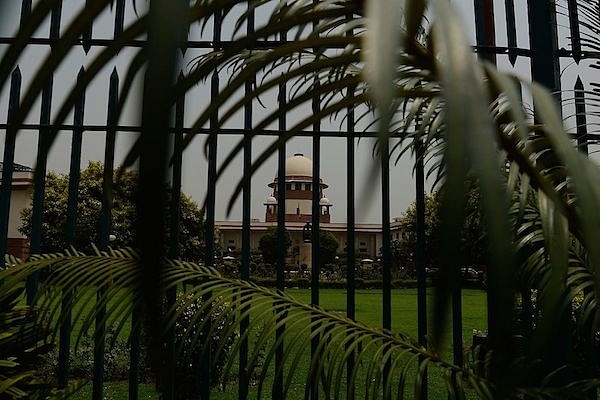Politics
Cracks In The SC Collegium— A Lone Voice For Reform?
- A senior sitting Judge of the Supreme Court has decided to publicly question its lack of transparency in the appointment and transfer of judges.

Photo: SAJAD HUSSAIN/AFP/Getty Images
For the first time in the Supreme Court’s history, a senior sitting judge has come out in the open and questioned its lack of transparency in the appointment and transfer of judges.
The Judge in question, Justice Jasti Chelameswar— as per this report of The New Indian Express— is apparently of the view that as long as the collegium’s considerations are kept under wraps, there is no point in attending the concerned meetings.
In doing so, Justice Chelameswar dissociated himself from the pro-status quo group among the Judges. According to the aforementioned report, the dissenting judge has expressed his reluctance to attend meetings of the Supreme Court Collegium in the form of a three-page letter to the Chief Justice of India, Justice T.S. Thakur. Justice Chelameswar’s letter has delayed the concerned meeting which was supposed to have taken place yesterday (1 September) to discuss the revised Memorandum of Procedure for appointment of judges. The New Indian Express reports:
According to highly-placed sources, Justice Chelameswar stated in his letter that nothing that’s discussed in the Collegium meeting remains on record and therefore, he saw no purpose in attending the meeting. Instead, he has suggested that the recommendations be sent to him in writing to record his views and return them to the Chief Justice. Indications are that Justice Chelameswar is in no mood to change his stand, including the decision-making of the Supreme Court.
A point to remember here would be that Justice Chelameswar was the lone dissenting judge in October last year, when a five-judge bench of the Supreme Court shot down the National Judicial Appointments Commission (NJAC) Act. Disputing the complete exclusion of the government from the selection process, he stated:
“Transparency is a vital factor in constitutional governance. Transparency is an aspect of rationality. The need for transparency is more in the case of the appointment process. Proceedings of the Collegium were absolutely opaque and inaccessible both to public and history, barring occasional leaks..”
Interestingly, Justice Kurien Joseph— who was also on the constitutional bench that struck down the NJAC Act— did admit, in his judgment, that the present Collegium system lacks transparency, accountability and objectivity. The esteemed judge even advocated the need for a “Glasnost” and “Perestroika” movement in the Collegium system.
Are we seeing the beginning of such a movement?
Support Swarajya's 50 Ground Reports Project & Sponsor A Story
Every general election Swarajya does a 50 ground reports project.
Aimed only at serious readers and those who appreciate the nuances of political undercurrents, the project provides a sense of India's electoral landscape. As you know, these reports are produced after considerable investment of travel, time and effort on the ground.
This time too we've kicked off the project in style and have covered over 30 constituencies already. If you're someone who appreciates such work and have enjoyed our coverage please consider sponsoring a ground report for just Rs 2999 to Rs 19,999 - it goes a long way in helping us produce more quality reportage.
You can also back this project by becoming a subscriber for as little as Rs 999 - so do click on this links and choose a plan that suits you and back us.
Click below to contribute.
Latest